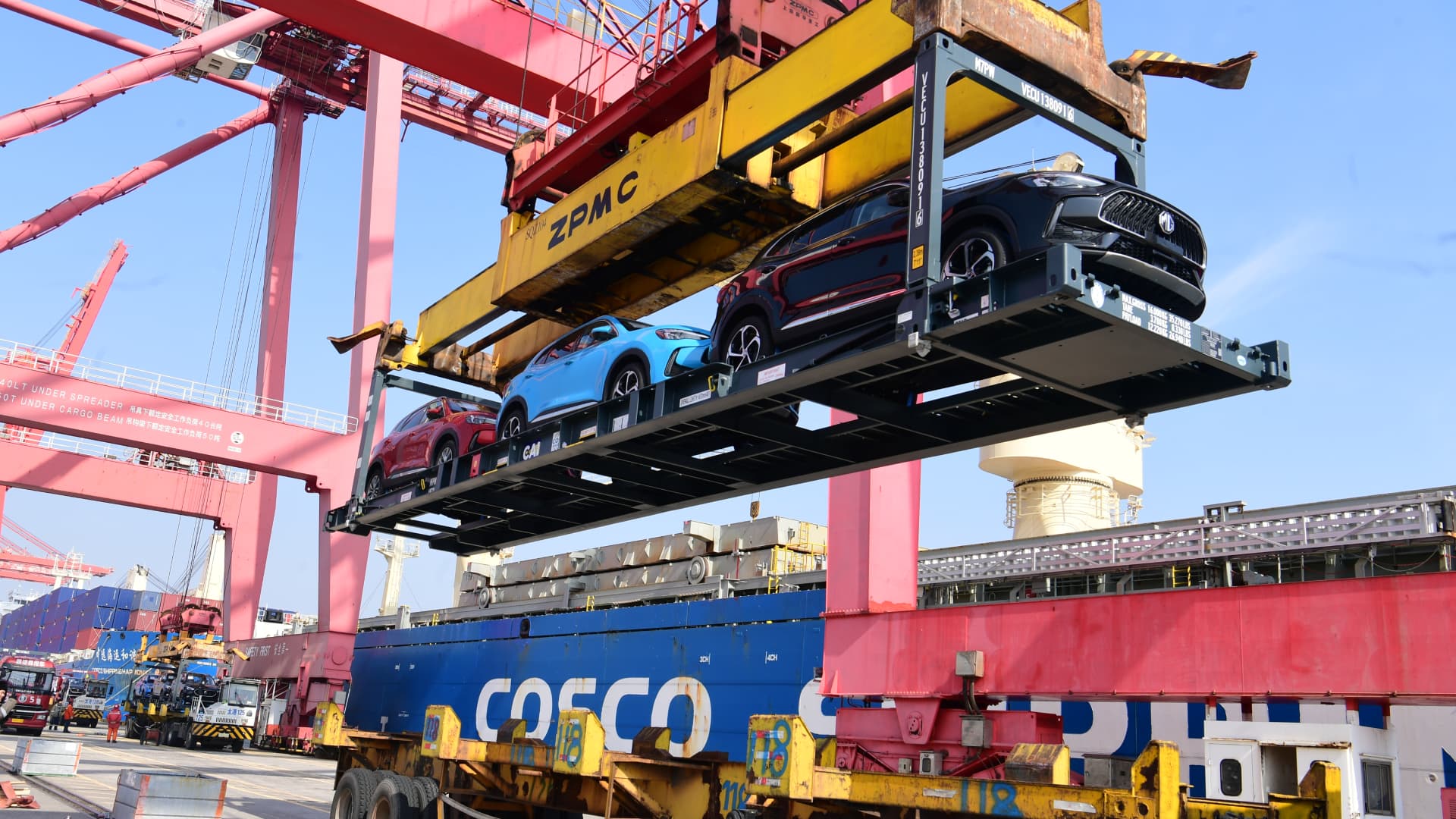Nation’s Ports Facing Cybersecurity Risks from Chinese-Made Cranes
The debate over cybersecurity risks associated with Chinese-made cranes at the nation’s ports has reached new heights, with recent White House action and hearings on Capitol Hill intensifying concerns about potential national security vulnerabilities within critical infrastructure. However, the Biden administration, lawmakers, and ports management remain divided on the true nature of the threat.
In a recent press briefing prior to President Biden’s executive order aimed at enhancing the cybersecurity of America’s ports, Rear Adm. Jay Vann, commander of the U.S. Coast Guard Cyber Command, disclosed that 80% of the “ship-to-shore” cranes facilitating trade at U.S. ports are manufactured in China and utilize Chinese software. This has raised fears that these cranes could be exploited for surveillance purposes by the Chinese government. The Biden administration estimates that there are around 200 People’s Republic of China (PRC) manufacturer cranes in the U.S.
A joint letter was sent to the Chinese crane manufacturer, ZPMC, by the Subcommittee on Counterterrorism, Law Enforcement, and Intelligence Committee on Homeland Security and Select Committee on China on February 29. The letter inquired about certain components, including cellular modems, installed on cranes without the knowledge of ports management. The Chinese government has dismissed these concerns as “paranoia-driven.” ZPMC has yet to respond to CNBC’s requests for comment.
While some of the nation’s largest ports have emphasized that the software controlling their cranes does not originate from China, the Biden administration argues that the risk lies in the installation of software during the manufacturing process in China. Kurt Fredrickson from the Coast Guard highlighted that all software, regardless of its origin, carries vulnerabilities.
Despite assurances from port officials about the security of their systems, the government’s focus on the issue is part of a broader industrial policy shift to bring manufacturing back to the U.S. amid increasing competition with China. As the rivalry between nations intensifies, concerns about potential cyber threats to critical infrastructure continue to grow.

